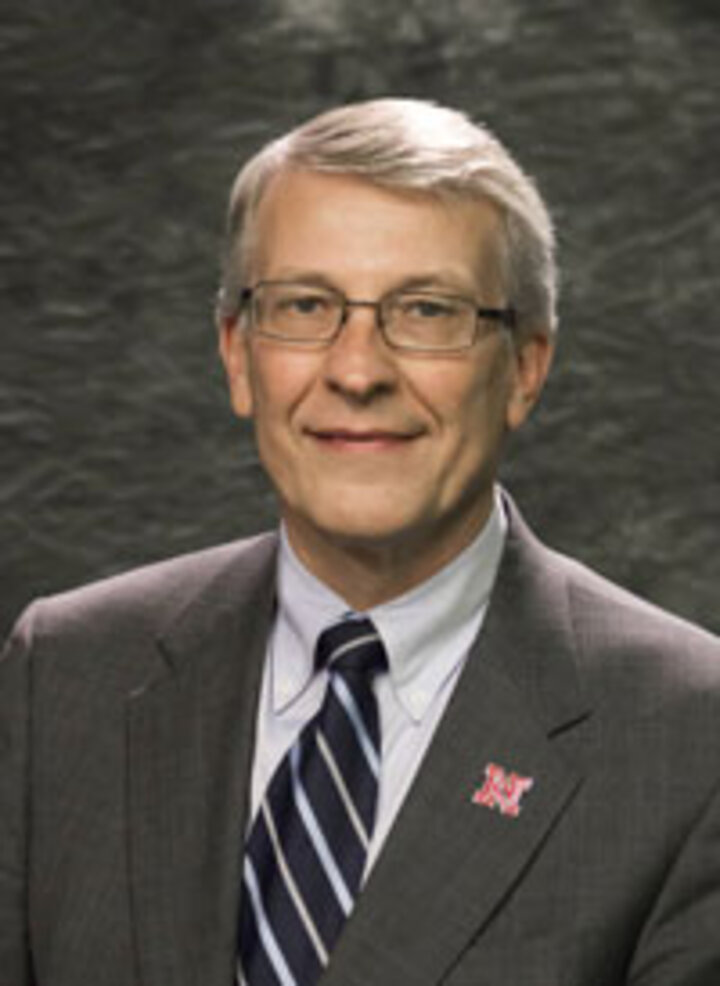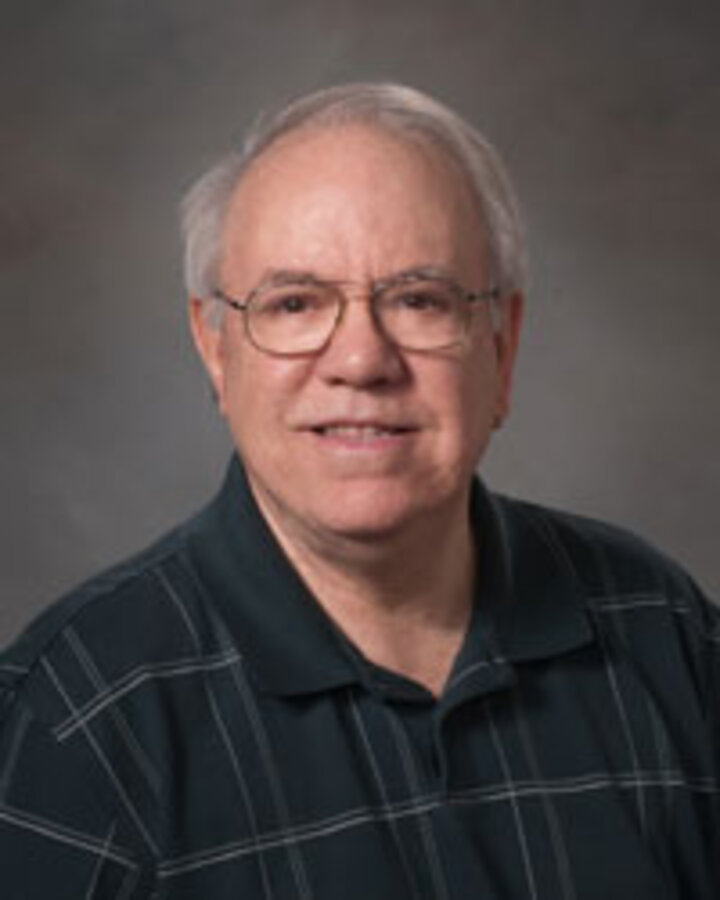The former assistant vice chancellor of the Institute of Agriculture and Natural Resources and a longtime food scientist are being honored this year by the Nebraska Hall of Agricultural Achievement.

Alan Moeller

Stephen Taylor
Alan Moeller, who retired last year, and Stephen Taylor, known internationally for his food-allergen research, will be honored at NHAA's annual banquet March 28 in the Nebraska East Union.
Moeller, a Wisner native, was raised on a small, diversified farm. He received his bachelor's and master's degrees in agricultural economics from the University of Nebraska-Lincoln. After graduation, he worked in several positions related to agriculture before joining the university in 1977.
Moeller served under five of IANR's six vice chancellors. He had a hand in many of the institute's achievements and established many of its business and personnel policies.
Moeller served as the primary contact for state senators and other government officials for agriculture, natural resources and related items on behalf of the university for more than 30 years. He also helped secure funding for a number of capital construction projects such as the Beadle Center; Food Industry Complex; Great Plains Veterinary Educational Center; Veterinary Diagnostic Center; greenhouse renovations; several projects on the Nebraska College of Technical Agriculture campus including the new Nebraska Agriculture Industry Education Center, student housing, and the expanded Veterinary Teaching Hospital; and several Greater Nebraska projects. He also had a major role in the agreement with Iowa State University for a joint Professional Program in Veterinary Medicine.
Moeller's honors include the Public Service to Agriculture Award, Exemplary Service Award by the American Distance Education Consortium, Omtvedt Innovation Award, Distinguished Service Award from the Nebraska Veterinary Medical Association, memberships in the Nebraska Hall of Agricultural Achievement and Agriculture Builders of Nebraska, Carl A. Donaldson Award for Excellence in Management, and recognition as one of the Outstanding Young Men of America.
Since Stephen Taylor joined UNL in 1987, he has been instrumental in educating the commodity agriculture industry, the food industry, regulatory bodies, consumer advocate groups, clinicians and individual consumers on food allergens.
Taylor has dedicated much of his career to research in food safety and
toxicology and has become one of the world's foremost authorities in the areas of sulfite sensitivity and food allergens, publishing well over 2,000 manuscripts on these topics.
During the 1990s, Taylor recognized the need to assist the food industry with better management of food allergens due to the number of packaged food recalls attributed to undeclared allergens. Since there was no federal funding for applied food allergy research in existence at that time and no single food manufacturer could afford to address the issue of food allergens, Taylor organized an industry funded consortium at UNL.
Seven founding industry charter members collectively funded research at UNL to increase the understanding of allergen thresholds, characterization and detection. Under Taylor's direction, this group has grown to more than 75 member companies. Throughout the world, Taylor and FARRP are recognized as the authority for food allergens, thresholds of concern, how to best manage allergens in a commercial plant and for the development of immunochemical assays.
Taylor's development of assays has led to the creation of an industry segment that provides commercial test kits for use by the food and regulatory industries worldwide. These test kits are used to protect consumers from inadvertent contamination of a food product and to ensure proper labeling of food.
FARRP also has sponsored several studies to determine the threshold doses for specific allergens to consumers. This work has been conducted in collaboration with many of the leading allergists around the world. The use of population threshold data, along with several additional variables, to quantitatively model the risk of an allergic reaction due to the potential of an undeclared allergen in a food product is the objective.
New NHAA Members
The following were named new members of the NHAA:
Donald Beermann, interim associate dean and director of the School of Veterinary Medicine and Biomedical Sciences, and former director of the Institutional Animal Care Program and head of the Department of Animal Science
Allen Dutcher, state climatologist, whose commentaries and forecasts are shared via CropWatch, Market Journal, KRVN and other audiences. Nebraska producers and agribusinesses rely on Dutcher in planning their daily operations.
James Goeke, a leading Nebraska groundwater expert, is emeritus professor and research hydrologist, formerly with the Conservation and Survey Division at UNL. Key among his research was gathering data for modeling the unconfined aquifers near the Platte River in the central Platte region, and similar stream-aquifer studies in the Republican River Valley.
Francis Jon Holzfaster of Paxton, who contributes to agriculture and to western Nebraska by positioning farming and ranching to be innovative, progressive and value-added. A third-generation family farmer, he produces corn, popcorn, alfalfa, wheat, soybeans and edible beans.
Mark Jagels of Davenport, a fourth-generation producer, who farms with his father and lives on the home place, homesteaded in 1885. Jagels' diversified interests include irrigated yellow and white corn and soybeans; a cow/calf operation; custom feeding; and a trucking company.
Jana Kruger of Arlington, president of the Nebraska State Fair Board and a board member when the state fair moved from Lincoln to Grand Island. Kruger is a landscaper, and counts farming and agricultural promotions among her professions.
Lisa Ann Lunz of Wakefield, who is active in state and national corn and soybean commodity groups, Farm Bureau, the U.S. Farmers and Ranchers Alliance, Nebraska Agribusiness Club, the Wakefield School Board, Wakefield Community Club and 4-H.
Randy Pryor of Wilber, a UNL extension educator focusing on conservation tillage, irrigation-saving technology, soil carbon, and wind energy. He helped create the Saline County Wind Association, which informs landowners of wind energy rights and opportunities.
Paul Schaffert of Indianola, an early eco-fallow adopter, farms and owns Schaffert Manufacturing and Sales and holds numerous patents on planter attachments, and his innovations have been featured nationally in magazines and in his presentations.
Todd Sneller, administrator of the State of Nebraska Ethanol Board and principal of Sneller Associates, a consulting partnership. Sneller began working with Nebraska ethanol development through the Nebraska Agricultural Products Industrial Utilization Committee. At the time there were no ethanol plants in Nebraska; today there are 24.
Leroy Thom of Hastings, president/owner of T-L Irrigation, which today employs more than 300. He was the first to develop the Tractor Towline Sprinkler System and is the sole manufacturer of the oil-driven Hydrostatic Pivot which is sold in more than 50 countries.
Wayne Ziebarth of Wilco, a lifelong farmer and former state senator, he co-chaired the appropriations, and water and resources committees. He was principal sponsor of the Nebraska Technical Community College Bill, which brought together State Technical Colleges, Area Technical Colleges and Academic Junior Colleges.
Dan Moser
IANR News Service
